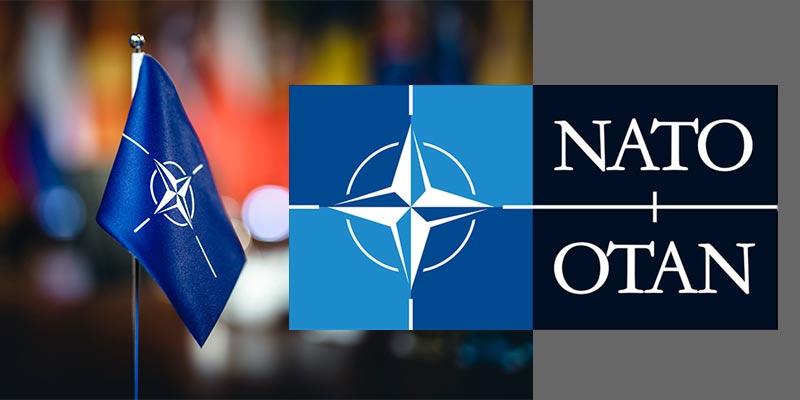- World
- Jan 24
Turkey approves Sweden’s NATO membership bid
• Turkey’s Parliament approved Sweden’s membership bid in NATO, clearing the biggest hurdle to expanding the military alliance.
• The legislators ratified Sweden’s accession protocol by 287 votes to 55, with four abstentions.
• Hungary then becomes the only NATO ally not to have ratified Sweden’s accession.
• NATO requires the unanimous approval of all existing members to expand, and Turkey and Hungary were the only countries that have been holding out.
• Sweden, whose membership bid marked a historic shift away from a non-aligned security policy, would enhance NATO defences in the Baltic Sea region facing Russia.
• For its part, Russia has cautioned that it would respond if NATO bolstered military infrastructure in the two Nordic states.
What is NATO?
• North Atlantic Treaty Organisation (NATO) was formed in 1949 with the signing of the Washington Treaty.
• NATO is a security alliance of 31 countries from North America and Europe.
• In 1949, there were 12 founding members of the alliance: Belgium, Canada, Denmark, France, Iceland, Italy, Luxembourg, the Netherlands, Norway, Portugal, the United Kingdom and the United States.
• The other member countries are: Greece and Turkey (1952), Germany (1955), Spain (1982), the Czech Republic, Hungary and Poland (1999), Bulgaria, Estonia, Latvia, Lithuania, Romania, Slovakia and Slovenia (2004), Albania and Croatia (2009), Montenegro (2017), North Macedonia (2020) and Finland (2023).
• NATO’s fundamental goal is to safeguard the Allies’ freedom and security by political and military means.
• NATO enables members to consult and cooperate on defence and security-related issues to solve problems, build trust and, in the long run, prevent conflict.
• NATO is committed to the peaceful resolution of disputes. If diplomatic efforts fail, it has the military power to undertake crisis-management operations. These are carried out under the collective defence clause of NATO’s founding treaty — Article 5 of the Washington Treaty or under a United Nations mandate, alone or in cooperation with other countries and international organisations.
Why Turkey opposed Sweden’s bid to join NATO?
• Sweden has criticised Turkey for human rights abuses and over democratic standards, irking politicians in Ankara.
• Turkey had been delaying Sweden’s membership for more than a year, accusing the country of being too lenient toward groups that Ankara regards as security threats.
• It has been seeking concessions from Stockholm, including a tougher stance toward Kurdish militants and members of a network that Ankara blames for a failed coup in 2016.
• Turkey had also been angered by a series of demonstrations by supporters of the outlawed Kurdistan Workers’ Party (PKK) in Sweden.
• Last month, Parliament’s foreign affairs committee gave its consent to Sweden’s bid in the first stage of the legislative process, after Turkish President Recep Tayyip Erdogan sent its accession protocol to lawmakers for approval.
• Sweden had since, among other things, amended its anti-terrorism laws, curbed the PKK’s financial activities, convicted a suspect for alleged money laundering and financing terrorism, extradited another suspect and lifted restrictions on arms sales to Turkey.
• Sweden has pledged deeper cooperation with Turkey on counter-terrorism and to support Turkey’s ambition to revive its European Union membership bid.
Hungary may follow Turkey’s lead
• Hungary has also stalled Sweden’s bid, alleging that Swedish politicians have told blatant lies about the condition of Hungary’s democracy.
• Hungary has said it would not be the last to approve accession, although it was not clear when the Hungarian Parliament intended to hold a vote.
• Unlike Turkey, Hungary does not have a list of demands, but says grievances need to be addressed before it can ratify Sweden’s accession to NATO.
• Hungarian Prime Minister Viktor Orban invited his Swedish counterpart to Budapest to discuss the bid.
Why Sweden and Finland decided to join NATO?
• Once a regional military power, Sweden has avoided military alliances since the end of the Napoleonic Wars. Like Finland it remained neutral throughout the Cold War, but formed closer relations with NATO after the 1991 Soviet collapse.
• After being firmly against NATO membership for decades, public opinion in both countries shifted following Russia's invasion of Ukraine in February 2022.
• Sweden and Finland abandoned their traditional positions of military non-alignment to seek protection under NATO's security umbrella,
• The Swedish and Finnish governments swiftly initiated discussions across political parties about NATO membership and reached out to the US, Britain, Germany and other NATO countries for their support.
• Finland joined the alliance in April 2023, becoming NATO’s 31st member, after Turkey’s Parliament ratified the Nordic country’s bid.
Manorama Yearbook app is now available on Google Play Store and iOS App Store


